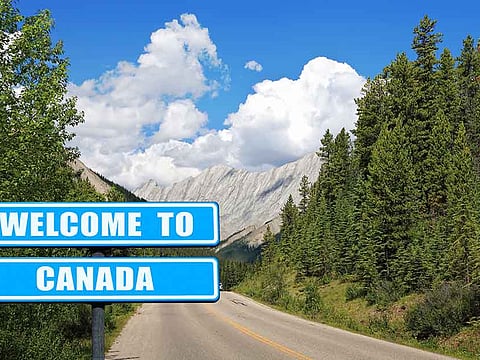Moving to Canada: What you need to know
Canada's immigration system is more welcoming than most. Experts explain the various pathways in

When it comes to seeking a new experience in new surroundings, Canada has always been a favoured destination. With its natural beauty and high quality of life, the land of the maple leaf also offers one of the warmest welcomes in the world to immigrants — all reasons that make it a top target for people in the UAE and across the GCC who are looking for a new work-and-life adventure.
“It provides its residents and nationals with a lot of benefits, from an excellent public school system to top-quality medical facilities,” says Bevan Berning, Dubai branch manager at Pathway Visas, an immigration services company working with expats. “If a resident can prove they are struggling to find a job, the government provides them with a weekly stipend to cover food costs and minimum housing bills.”
Clint Khan, General Manager of Y-Axis Middle East, an immigration and visa consultancy based at Dubai Multi Commodities Centre, agrees: “The Canadian government has always been pro-migration and very much in favour of skilled and economic migration as well as family reunification.”
Khan says as many as 250,000 people from all over the world migrate to Canada every year and those who are given a Permanent Resident Visa are eligible to apply for Canadian citizenship after only three years. As per the new three-year plan, Canada intends to welcome more than one million new migrants from 2018 to 2020.
Mohammad Al Sabagh, an immigration consultant at the Canadian Centre for Immigration Services in Sharjah, says that in the wake of an unstable US economy, Canada’s “user-friendly” immigration service makes the country an even easier option to consider. “Canada’s immigration system is one of the best points based immigration systems around.
“The programme is very well structured to invite skilled workers, business people or investors and students.”
Skilled workers apply
The path to Canada is smoothed by being a skilled worker, as it has criteria that expats must meet. This process is now easier with the introduction of Express Entry, a fast-track immigration system that allows skilled workers to seamlessly transition into a Canadian career.
Express Entry is used to manage applications for permanent residence under three economic immigration programmes: the Federal Skilled Worker Programme, the Federal Skilled Trades Programme and the Canadian Experience Class. Applicants complete an online profile — including details such as skills, work experience, languages and education — and are given a score out of 1,200. Those meeting the minimum Comprehensive Ranking Score are invited to apply for permanent residency.
A candidate gets additional points for having a qualifying education in Canada, a valid job offer or a nomination by a province or territory. Once invited, there is a 90-day period in which to submit an online application for permanent residence. Most applications with the necessary supporting documents will be processed in six months or less, and even if candidates who have submitted an Express Entry profile do not receive an invitation within 12 months, they can reapply.
Points on board
“Canada looks at the basic qualifying factors — such as age, education, language, work experience and adaptability — and awards points based on these,” explains Berning. “If you qualify, you can most likely emigrate there, but we always emphasise that IELTS [International English Language Testing System] plays a huge role in a successful application, as it carries the most points.”
Some professions do not require visas to enter Canada, and there is a special permanent residence category for certain self-employed workers such as artists
and farmers.
Another route to a life in Canada is Study to PR, where you can apply for a student visa, which after completing the education can be converted into a Post Study Work Visa. From there, it’s a clear path to Permanent Residency (PR).
Those looking for a different option to migrate to Canada can choose to do so though investor programmes. While Canada’s Federal Investor Immigration Programme, which proved to be one of the most popular when it launched in the late Eighties, is now closed, Canadian provinces such as British Columbia, Quebec and Manitoba have their own small programmes.
“You need to prepare a business plan that not only proves your investment would add value to the economic development of the province but also proves that you will generate local jobs with your business,” Khan explains.
Each province has its own requirements. However, Khan adds that citizenship through property investments is not an option in Canada.
Rights and duties
Where to live Permanent residents (PRs) and dependents can live, work and study in any of ten provinces or three territories.
Education PRs have the right to a free education up to the age of 18 in the Canadian public school system. University tuition fees are also reduced for permanent residents as compared to international students.
Healthcare PRs qualify for provincial universal health care coverage from three months after their arrival. Most necessary medical expenses are covered.
Tax You must pay taxes at federal, provincial and municipal levels. Income tax is imposed on the basis of residency rather than citizenship. PRs are required to pay Canadian taxes on worldwide income. Assets of newly arriving immigrants are not taxed.
Canada Child Tax Benefit Low-income families with children under 18 receive monthly government payments to help with expenses.



